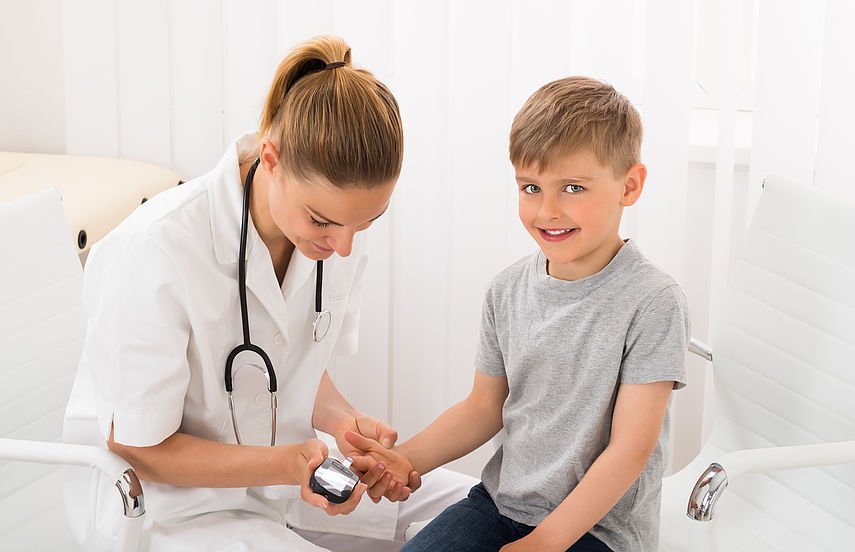
You don’t have to be a child to really find something stupid like cough.
What could be worse than being plagued by unnecessary coughing attacks, especially just before falling asleep??
Because, unlike a proper cough, where you almost feel that the body wants to get rid of all the bad viruses and mucus in the lungs, the dry, irritating cough seems completely pointless. In addition, the many coughs are not even really satisfying. Instead, just a few seconds later, this tickling in the throat, which can hardly be suppressed, is waiting again.
Children are no different. They don’t even try to control themselves and cough when it tickles. This in turn leads to annoyed family members or friends who are friends and on the other hand to pain even more because of the constantly irritated throat.
Irritating cough – enemy without a face
Many young parents are initially very anxious and unsettled when their offspring is sick and does not stop coughing. In the case of classic colds with cough and runny nose, you are initially left rather relaxed, since you know how to help yourself from experience. However, if the symptoms change quickly or if the child’s behaviors occur that cannot be clearly assigned, this often becomes prompt (and so do I) right!) consulted the pediatrician. Because, dry lay cough is often very difficult to assign as a layperson. Now it is a serious one illness or "only" for a slight infection or a slightly irritated throat?
Causes of irritable cough in children
- Harbinger of an infection
Irritant cough is usually the typical onset of a cold. It arises from the fact that the viruses and bacteria irritate the mucous membranes in the mouth and throat and thus also cause the corresponding cough. Later, the cough usually extends to the bronchi, so that the classic cough (sometimes with phlegm expectoration) occurs. - Follow strong mouth breathing
But irritating cough also occurs very often at night, namely when breathing occurs through the mouth due to a cold and the mouth mucous membrane thus dries up. - Concomitant symptom of serious illnesses
Although the cause of irritable cough in most cases is a simple cold, serious illnesses can of course (although rarely) be hidden behind the clinical picture. For example, there may be diseases of the heart and stomach, but also bronchial asthma or pleurisy.
What helps with irritable cough?
Home remedies, homeopathy and Co. relieve tickling
If the causes of cough in children have been adequately investigated and a simple cold has actually been diagnosed, the cough as a symptom in itself should now be combated.
Home remedies for irritable cough
- potato wrap
For this, soft and still hot jacket potatoes are crushed in a cloth and then wrapped. Now place this wrap on your chest (test the temperature on an insensitive part of your body beforehand!) And wear it for as long as you feel comfortable. - adequate hydration
Regular drinking (also in small quantities) or soups moisturize the mucous membranes and thus relieve the irritating cough in children. - High humidity
In order to keep the respiratory tract as moist as possible, high humidity should also be ensured in the rooms. Especially in children who suffer from irritable cough at night, one should not forget to take appropriate precautions. This can be done either with a damp cloth on the heater or by placing a simple water bowl. - Inhale
Inhalation moistens the mucous membranes and soothes the irritating cough in children. Appropriate additives such as chamomile support the effect. - Cough
Various types of tea also alleviate the irritating cough in children, for example marjoram, thyme and fennel. - Suck candies
Icelandic moss pastilles have proven to be a particularly helpful remedy for irritable cough in children, although not every child will like them. By sucking the lozenges, the mucous membranes in the mouth and throat area are moistened over the long term, thus relieving the irritable cough. Alternatively, children can basically also suck sugar-free sweets, because this also leads to an increased production of saliva for a short time, which in turn weakens the stimulus in the throat. - Onions and honey
These two foods are said to have a lot of healing effects for coughing irritants. The onions are used with a warm onion wrap on the child’s breast, and boiled onions can also be eaten mixed with a little water and honey overnight. Both of these loosen up mucus in the bronchi. This can then be coughed up much more comfortably than the apparently useless cough. (You like to accept bad breath) - essential oils and ointments
The use of essential oils (camphor, mentol, etc.) should be viewed critically. Many of these oils or ointments are helpful for loosening mucus, but they also attack the throat and narrow the airways. This can be especially true if it is just a dry cough even more Cause irritation in the throat and thus produce the opposite effect. Use in small children is generally not recommended.
breathing exercises
Various breathing exercises can help children to be distracted from the urge to cough or to actually weaken it through targeted breathing. For example, it can help to hold the air breathed in through your mouth and blow it out in a gush (similar to blowing out a candle). Blowing small styrofoam balls or table tennis balls over a table top can also relieve the urge to cough.
Homeopathic remedies relieve dry, irritable cough
Since irritable cough does not actually appear as an independent disease, but is mostly a symptom of various diseases, the optimal homeopathic remedy also depends heavily on which disease is acute.
In general, Ipecacuanha, Chamomilla or Belladonna often brings relief, but Nux vomica or Allium cepa are also helpful. (Potencies D1 to D6) A homeopathy guide for use in children can be helpful when making a selection.
Anti-cough medication
First of all, you can consult well-known home remedies or homeopathic remedies. Although these agents are less effective than conventional medications, they are free of side effects. However, if the irritable cough persists for a longer period of time, the pediatrician will prescribe a corresponding medication. These are often herbal medicines such as cough syrups. Because if not necessary, doctors usually try to accept as few side effects as possible.
Cough syrups either suppress the irritating cough in children or promote secretion in the mouth, so that mucus can be coughed up, which is perceived as much more pleasant for the affected children than the constant irritating cough.
Quick help for an acute coughing fit
If a child suddenly can’t stop coughing, the quickest way to help is to take it to the bathroom and let hot water run into a sink. Then the child should hold his head above the water surface and try to breathe in as deeply as possible. The damp vapors help for a moment so that the child can calm down.
Irritant cough – self-protection of the body
Basically, you always have to remember that the cough reflex is generally an important protective reflex for the body. In other words, the body simply wants to get rid of the pathogens. It is similar with fever. The children’s body temperature rises to eliminate temperature-sensitive pathogens.
The protective mechanism of your own body should only be combated with medication in an emergency – namely when conventional means do not work.
RELATED ITEMS
-

Diabetes in children »causes, symptoms & treatment
The vast majority (95%) of diabetic children develop congenital type 1 diabetes, the acquired form, type 2 diabetes, occurs…
-

Learning disability (learning disability) in children – causes and opportunities
Prof. Dr. Hans Weiß When parents refer to terms such as “developmental disorder”, “learning disorder” in connection with their child from experts, but above all…
-

Causes and treatment of stuttering in children – medical lexicon & guide
Numerous jokes and the unfortunately often imitated symptoms of stuttering show again and again that many people find this a strange comedy…
-
Child hair loss: causes and treatment
Practical help When the comb is full of hair or bald spots suddenly appear on the head, the shock is great. These causes…
